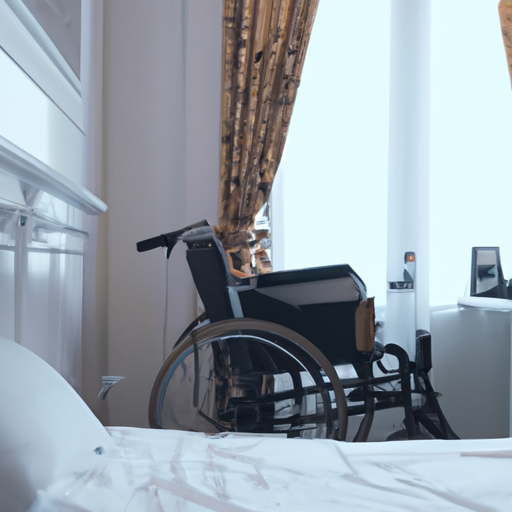
Accessible Accommodation: Overcoming Barriers for Disabled Travelers
Traveling can be an exciting and enriching experience for anyone, but for individuals with disabilities, it often comes with a unique set of challenges. One of the biggest hurdles they face is finding accessible accommodation that meets their specific needs. Booking a hotel room may seem like a simple task for most people, but for disabled individuals, it can be a daunting process.
One of the main challenges faced by disabled individuals when booking hotels is the lack of information about accessibility. Many hotel websites do not provide detailed information about the accessibility features of their rooms and facilities. This lack of transparency makes it difficult for disabled travelers to determine whether a hotel can accommodate their specific needs. It is crucial for hotels to provide accurate and comprehensive information about their accessible rooms, such as the width of doorways, the presence of grab bars in bathrooms, and the availability of wheelchair ramps.
Another challenge faced by disabled individuals is the limited availability of accessible rooms. While some hotels may claim to have accessible rooms, the reality is that these rooms are often in high demand and may be booked months in advance. This leaves disabled travelers with limited options and can make it difficult for them to find suitable accommodation for their trip. Hotels should prioritize the availability of accessible rooms and ensure that they are not disproportionately allocated to non-disabled guests.
Even when accessible rooms are available, they may not always meet the specific needs of disabled individuals. For example, a room may have grab bars in the bathroom, but the bed may be too high for someone with mobility issues to transfer onto. It is important for hotels to consider the diverse needs of disabled travelers and provide rooms that are truly accessible. This includes features such as lower beds, wider doorways, and roll-in showers.
In addition to physical accessibility, disabled individuals also face challenges related to communication and customer service. Many hotels do not have staff members who are trained in assisting disabled guests or who have knowledge of sign language or other communication methods. This can lead to misunderstandings and frustration for both the hotel staff and the disabled traveler. Hotels should invest in training their staff to be more inclusive and provide better customer service to disabled guests.
Furthermore, the booking process itself can be a barrier for disabled individuals. Many hotel booking websites are not designed with accessibility in mind, making it difficult for individuals with visual impairments or mobility issues to navigate and complete their reservation. Hotels should ensure that their online booking platforms are accessible to all users, including those with disabilities. This can be achieved by incorporating features such as screen reader compatibility and keyboard navigation.
In conclusion, disabled individuals face numerous challenges when booking hotels. These challenges include the lack of information about accessibility, limited availability of accessible rooms, rooms that do not meet specific needs, communication barriers, and difficulties with the booking process. It is crucial for hotels to address these challenges and provide a more inclusive and accessible experience for disabled travelers. By doing so, they can ensure that all individuals, regardless of their abilities, can enjoy the benefits of travel and have a comfortable stay.
Ensuring Inclusive Hospitality: Addressing the Needs of Disabled Guests

The Challenges Faced by Disabled Individuals When Booking Hotels
When it comes to travel, everyone deserves to have a comfortable and enjoyable experience. However, for disabled individuals, booking hotels can often present a unique set of challenges. From finding accessible accommodations to ensuring that their specific needs are met, disabled individuals often face obstacles that can make the process more difficult. In this article, we will explore some of the challenges faced by disabled individuals when booking hotels and discuss how the hospitality industry can address these needs to ensure inclusive hospitality.
One of the main challenges faced by disabled individuals when booking hotels is the lack of accessible accommodations. Many hotels claim to be accessible, but in reality, they may not have the necessary facilities and features to accommodate disabled guests. This can include things like wheelchair ramps, accessible bathrooms, and rooms with wider doorways. Without these essential features, disabled individuals may find themselves unable to navigate the hotel comfortably, which can greatly impact their overall experience.
Another challenge faced by disabled individuals is the lack of information provided by hotels regarding their accessibility features. While some hotels may mention that they have accessible rooms, they often fail to provide detailed information about the specific features available. This can make it difficult for disabled individuals to determine whether the hotel will meet their specific needs. For example, a person with a visual impairment may require a room with braille signage and tactile flooring, but without this information, they may be left unsure if the hotel can accommodate them.
Furthermore, the booking process itself can be a challenge for disabled individuals. Many hotel booking websites do not have specific filters or options to search for accessible accommodations. This means that disabled individuals have to spend extra time and effort manually searching for hotels that meet their needs. Additionally, some hotels may require disabled individuals to call and discuss their requirements, which can be time-consuming and frustrating.
To address these challenges, the hospitality industry needs to prioritize inclusivity and ensure that their accommodations are truly accessible. This can be achieved by conducting regular accessibility audits to identify any areas that need improvement. Hotels should also provide detailed information about their accessibility features on their websites, including photos and descriptions of accessible rooms and facilities. By doing so, disabled individuals can make informed decisions when booking hotels and have peace of mind knowing that their needs will be met.
In addition, hotel booking websites should include specific filters and options for searching for accessible accommodations. This would greatly simplify the booking process for disabled individuals, allowing them to easily find hotels that meet their needs. Hotels should also train their staff to be knowledgeable about accessibility and how to assist disabled guests. This includes providing training on how to communicate with disabled individuals and how to address their specific needs.
In conclusion, disabled individuals face a range of challenges when booking hotels. From the lack of accessible accommodations to the lack of information provided by hotels, these obstacles can make the process more difficult and frustrating. However, by prioritizing inclusivity and taking steps to address these challenges, the hospitality industry can ensure that disabled individuals have a comfortable and enjoyable experience when booking hotels. By providing accessible accommodations, detailed information, and a streamlined booking process, hotels can create a welcoming environment for all guests, regardless of their abilities.
Technology and Innovation: Enhancing Hotel Booking Experiences for Disabled Individuals
The Challenges Faced by Disabled Individuals When Booking Hotels
Traveling can be an exciting and enriching experience for everyone, but for disabled individuals, it often comes with unique challenges. One of the most significant hurdles they face is booking suitable accommodations that cater to their specific needs. However, thanks to technology and innovation, the hotel booking experience for disabled individuals is being enhanced, making it easier for them to find and reserve accessible hotels.
One of the main challenges disabled individuals encounter when booking hotels is the lack of accurate and detailed information about accessibility features. Many hotel websites provide limited information about their accessible rooms, leaving potential guests unsure if the accommodations will meet their requirements. This lack of transparency can be frustrating and time-consuming, as disabled individuals often have to contact hotels directly to inquire about accessibility features.
Fortunately, technology has come to the rescue with innovative solutions that address this issue. Some hotel booking platforms now offer detailed accessibility information for each property, including the availability of accessible rooms, the presence of ramps or elevators, and the dimensions of doorways and bathrooms. This wealth of information allows disabled individuals to make informed decisions about their hotel bookings without the need for extensive research or multiple phone calls.
Another challenge faced by disabled individuals when booking hotels is the limited availability of accessible rooms. Many hotels only have a small number of accessible rooms, which are often in high demand. This can make it difficult for disabled individuals to secure suitable accommodations, especially during peak travel seasons. Additionally, some hotels may not prioritize the maintenance and upkeep of their accessible rooms, leading to subpar conditions that do not meet the needs of disabled guests.
To address this issue, technology and innovation have introduced features that improve the accessibility booking experience. Some hotel booking platforms now allow users to filter their search results specifically for accessible rooms. This feature saves disabled individuals time and effort by only displaying hotels that have available accessible rooms. Additionally, some platforms provide real-time updates on room availability, ensuring that disabled individuals can secure their preferred accommodations promptly.
Furthermore, technology has also facilitated the implementation of virtual tours for hotels. These virtual tours allow disabled individuals to explore the hotel’s accessibility features from the comfort of their own homes. By virtually navigating through the hotel’s rooms and facilities, disabled individuals can assess if the accommodations meet their needs before making a reservation. This innovative solution not only saves time but also provides peace of mind, knowing that the chosen hotel will be suitable for their specific requirements.
In conclusion, disabled individuals face various challenges when booking hotels, including the lack of accurate accessibility information and limited availability of accessible rooms. However, technology and innovation have significantly improved the hotel booking experience for disabled individuals. With detailed accessibility information, real-time availability updates, and virtual tours, disabled individuals can now find and reserve suitable accommodations more easily. These advancements not only enhance the hotel booking experience but also promote inclusivity and accessibility in the travel industry.


